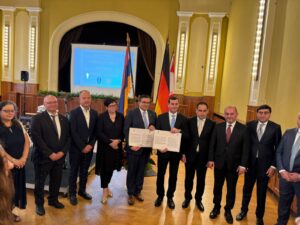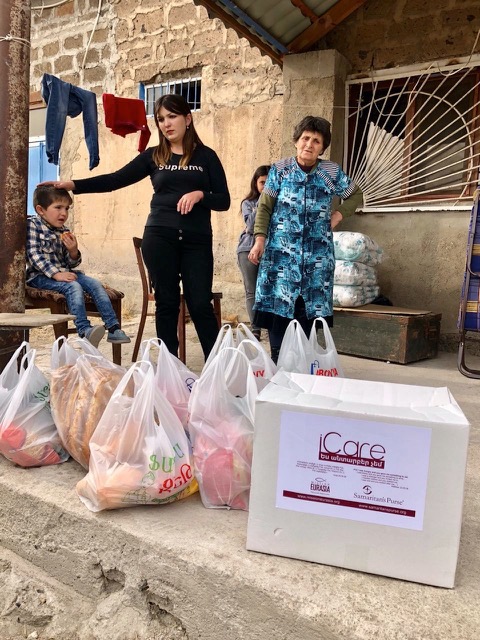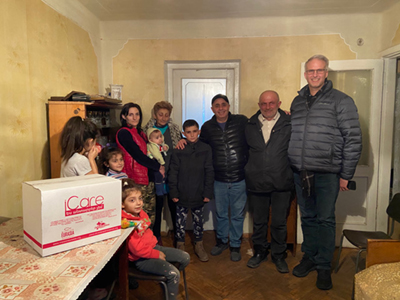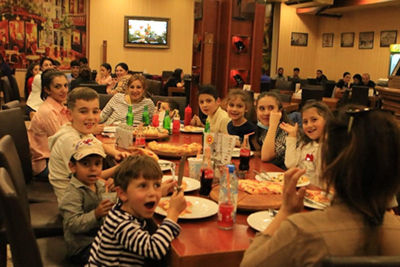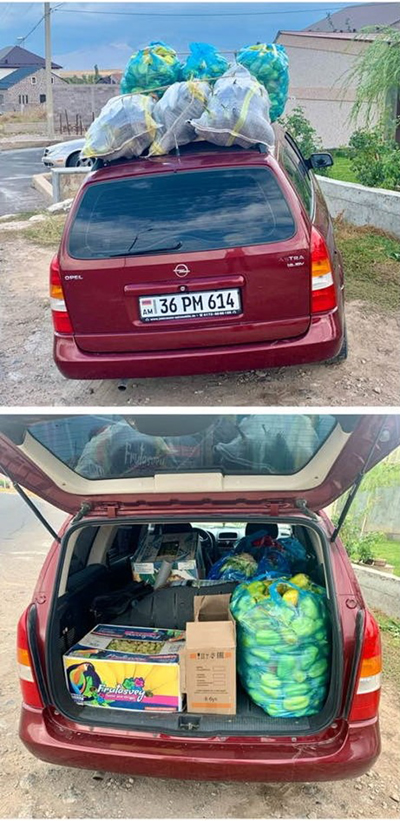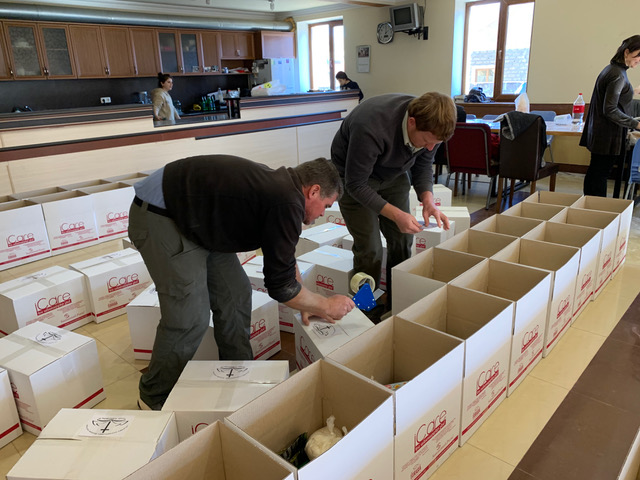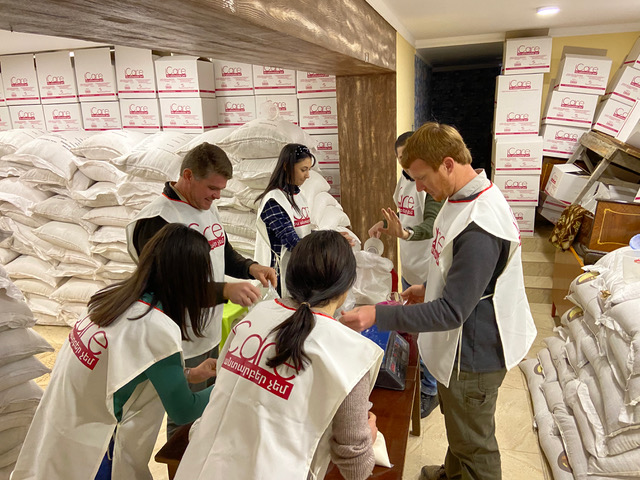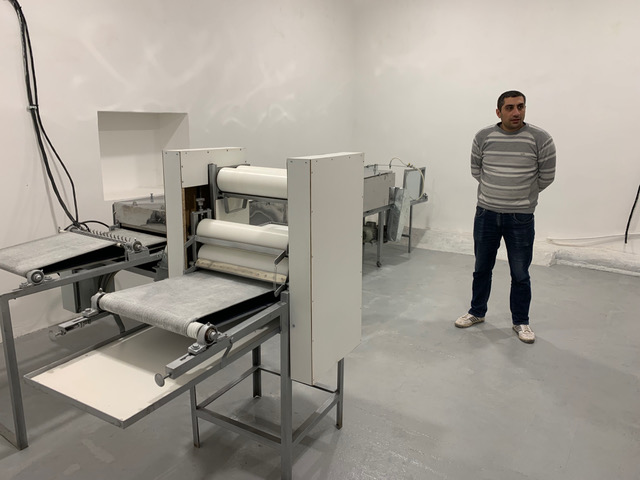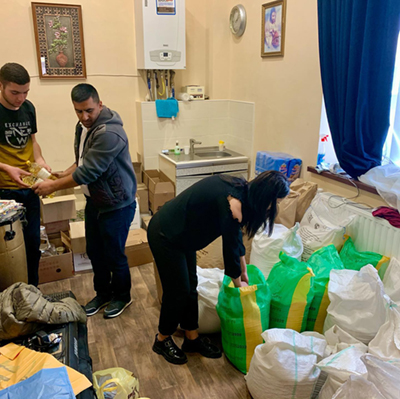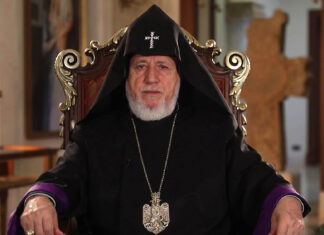DETROIT — The disaster of the 2020 Artsakh War led to as many as 100,000 refugees to initially flee Artsakh to Armenia. While many returned after the war, the humanitarian needs remain great and the resources of the Armenian and Artsakh governments limited. Aside from Armenian organizations throughout the world, various international institutions began to provide aid, including religious organizations. Mission Eurasia is one that has become active in Armenia, with Don Parsons, its ministry director for unreached people groups, taking three trips there since the end of October last year, and arranging for food, clothing, and other aid to be sent through various partner organizations.
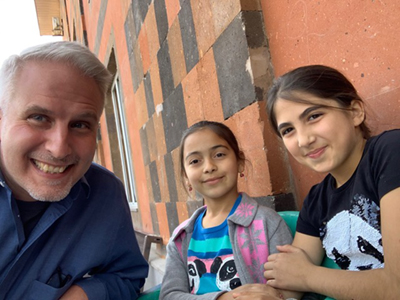
Mission Eurasia (formerly called Peter Deyneka Russian Ministries) was founded in 1991 after the collapse of the Soviet Union to, according to its current website, “react quickly and decisively to new opportunities for evangelism and church-planting in this former communist empire.” At present it is under the leadership of Sergey Rakhuba, who was originally from Ukraine but lived in Moscow for many years before moving to Illinois. Rakhuba attended the Moddy Bible Institute, a fundamentalist Christian institute of higher learning in Chicago. Mission Eurasia, the website continues, along with its in-country affiliate Mission Eurasia Field Ministries, works “to train, equip and mobilize the next generation of Christian leaders to transform their nations for Christ through strategic, holistic ministry.”
Parsons and his wife Esther lived for more than twelve years in the former Soviet Union, including eight years in Ukraine, starting in the late 1990s. Parsons, who grew up as an Evangelical Baptist, worked as a missionary and learned the Russian language. He did the same work in Kazakhstan. Parsons was director of Globalization and International Personnel at Send International, based in Farmington, Mich. He moved back to the US but last year decided to start working with Mission Eurasia. The organization has an international office in Franklin, Tenn., but its main field ministry office is outside of Kiev.
Parsons, who lives in the Detroit area, started September 1, and a month later was still trying to figure out during a covid year what work would be like for him, he said, when the president of the organization called and spoke about the situation in Armenia. He wanted to send a delegation to see what kind of support could be provided. Unexpectedly, Rakhuba asked whether Parsons would be able to leave for Armenia the next day. Having already recovered from a bout of covid, Parsons did not shy away from traveling and agreed to go.
This first trip of around ten days starting at the end of October was exploratory but boxes of food and the scriptures were also distributed. With a team including members from Ukraine and Russia, Parsons traveled up and down Armenia while the Artsakh war was still raging. When he went to Goris, a city of 20-22,000 people, he said he found more than 10,000 refugees from Artsakh. The mayor of Goris pointed to a school which was initially closed due to covid but now held women and children refugees using makeshift beds. The adult men at that point were still in Artsakh. The city government had difficulties in feeding an increase practically overnight of fifty percent of its population and later, Mission Eurasia was able to send some food to help.
He said of that trip: “It was a tough situation, and we heard tough stories from so many women. We visited homes where we knew people lost their husbands, brothers and sons.”
